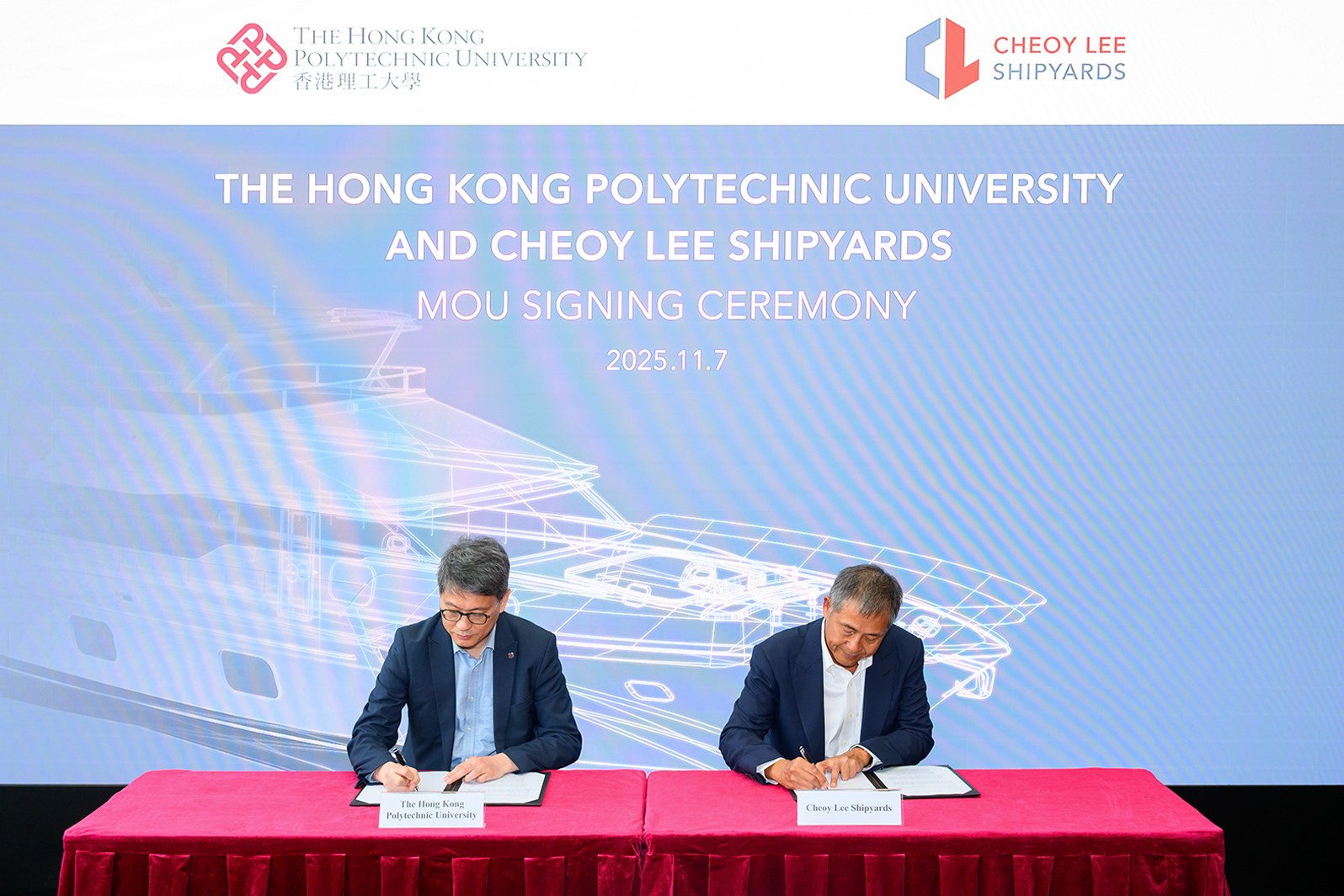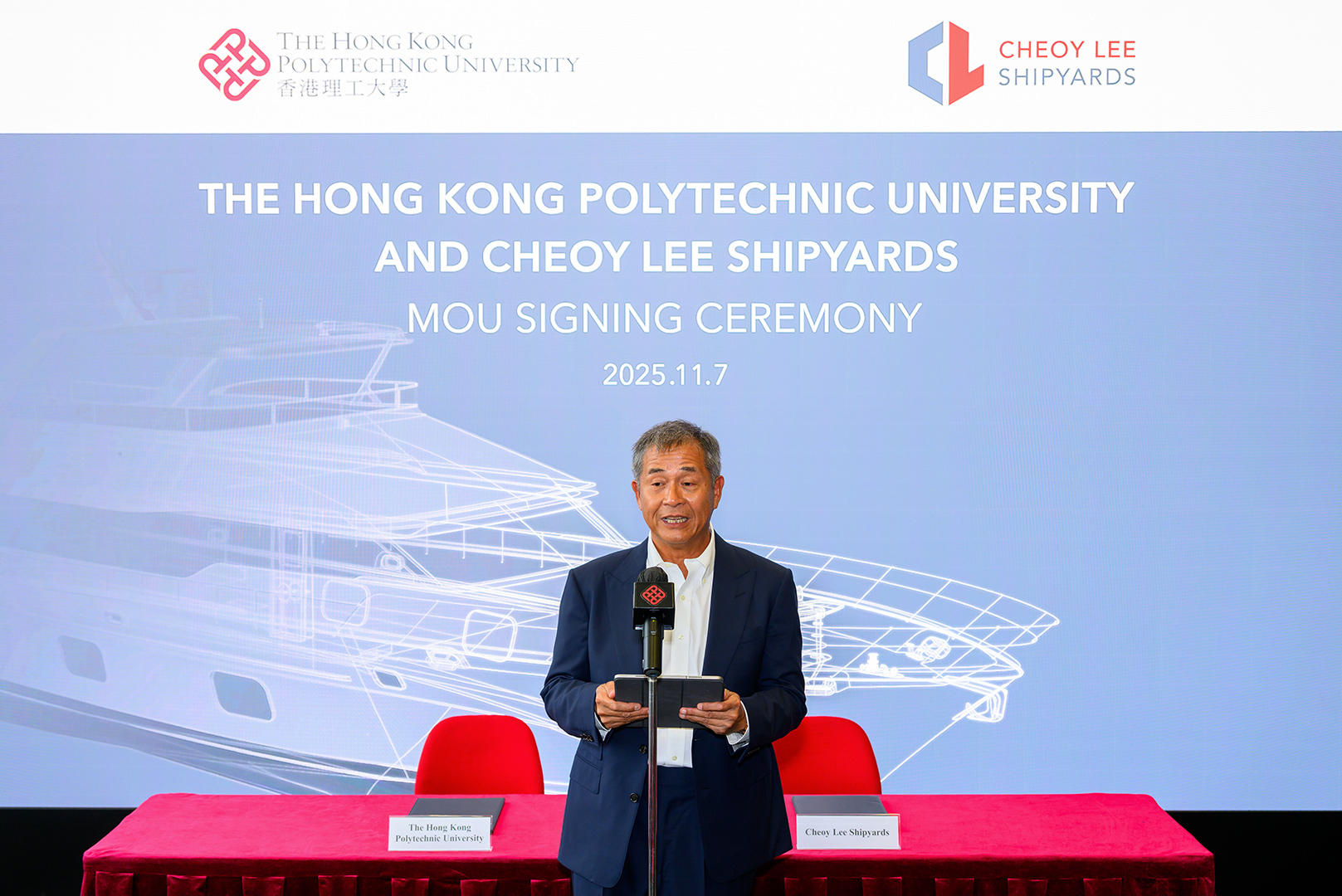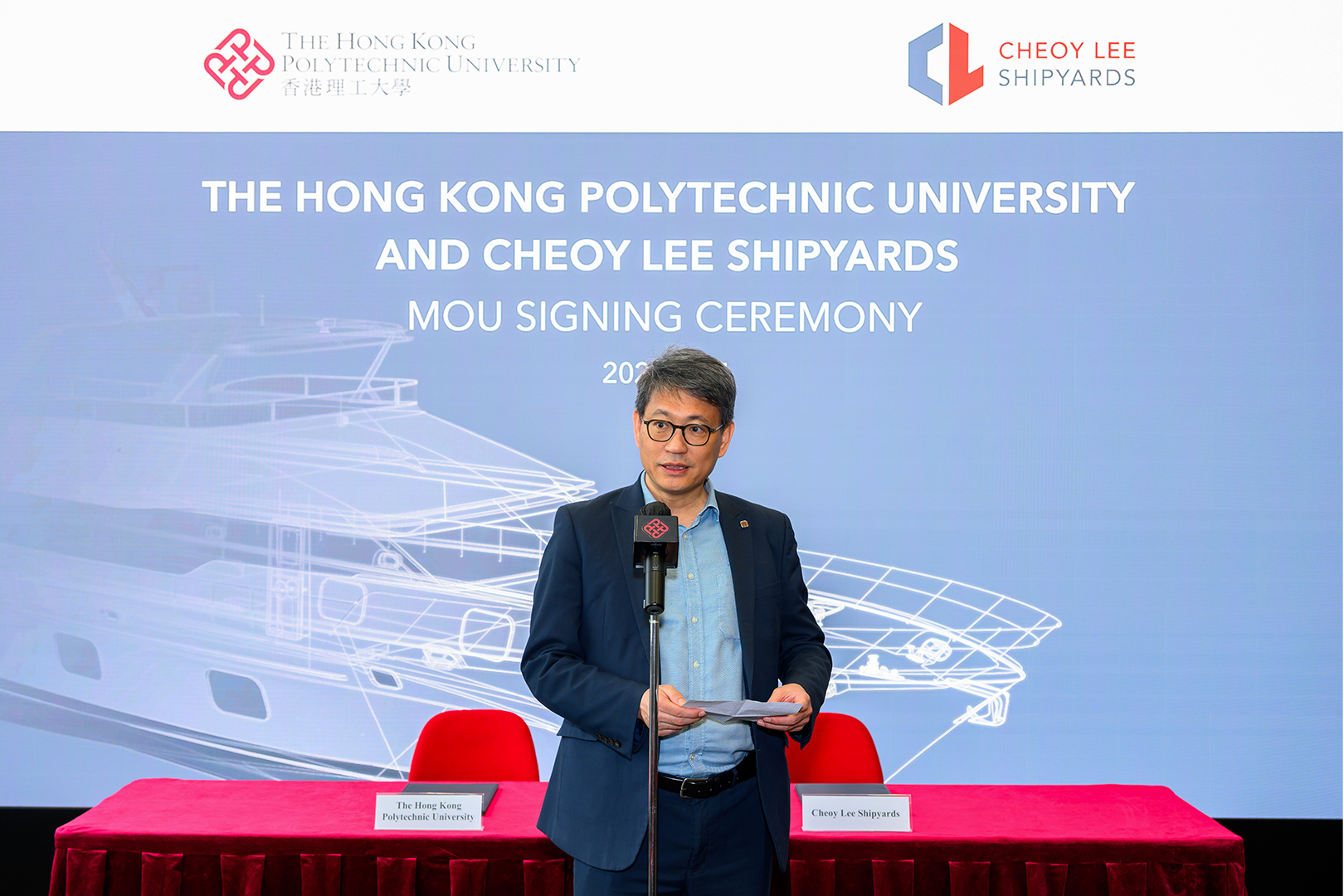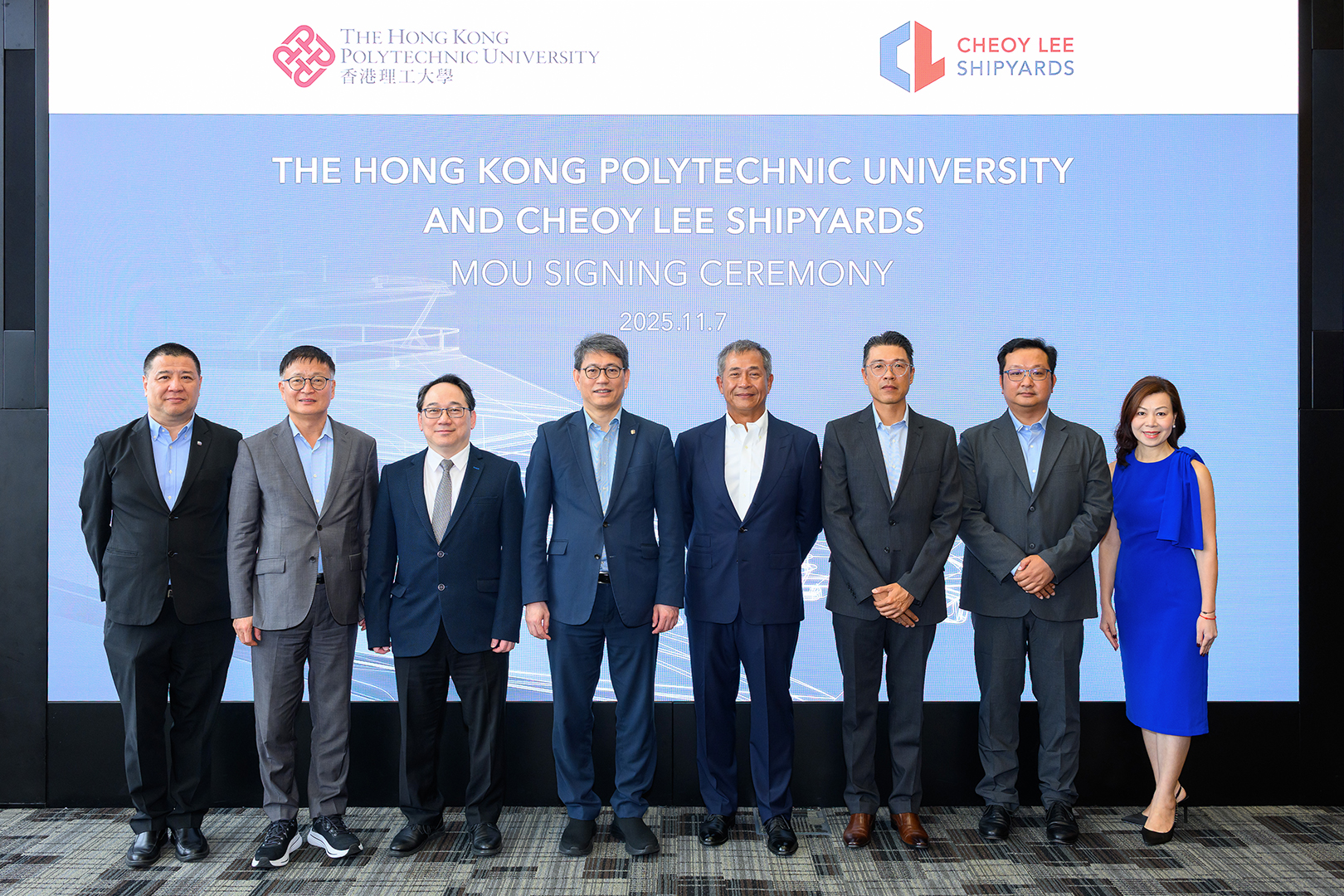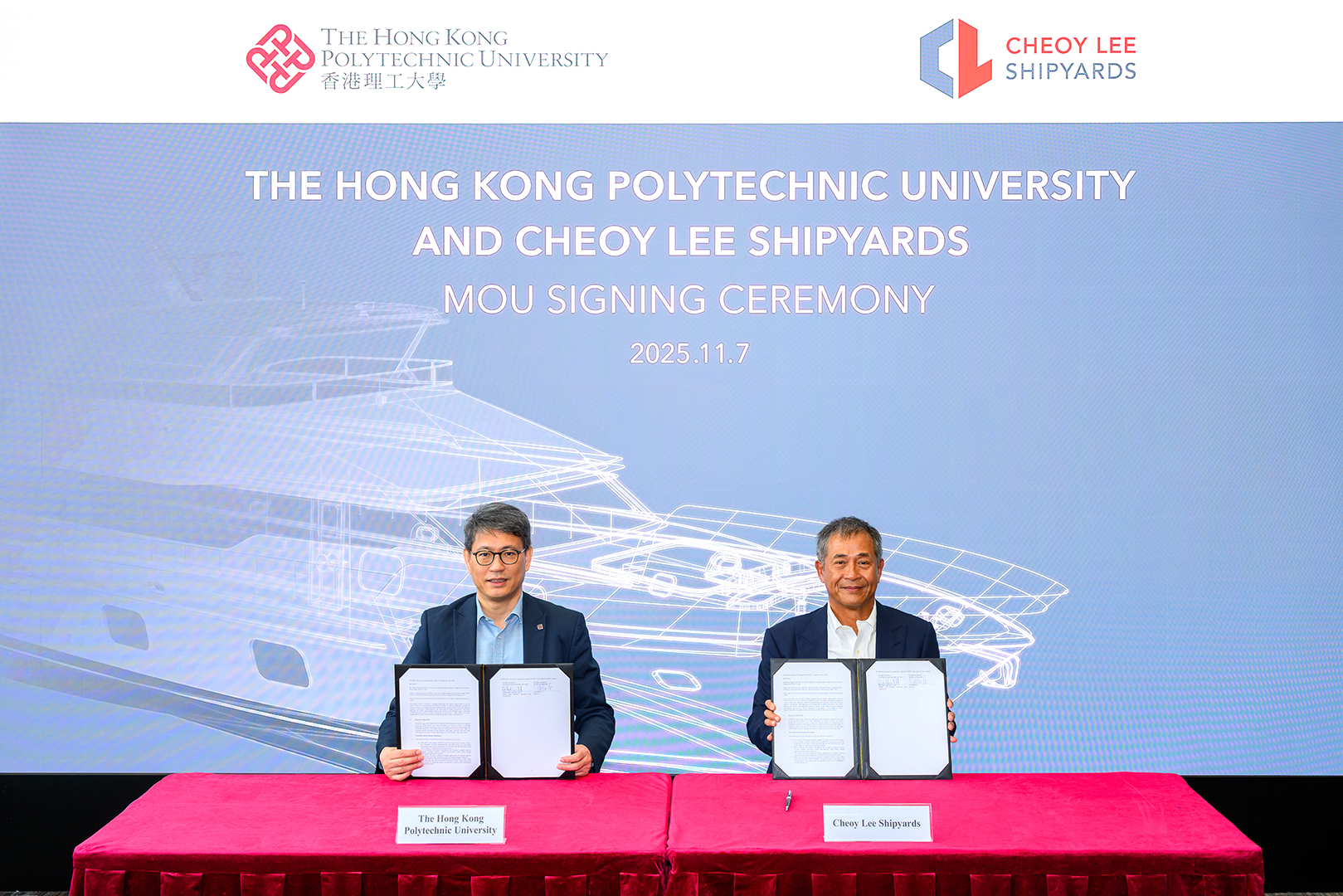
The Hong Kong Polytechnic University (PolyU) has entered into a new collaboration aimed at accelerating innovation in artificial intelligence robotics, green materials and alternative-powered vessels. The initiative seeks to strengthen research and development in sustainable maritime technologies, with a focus on electric propulsion, renewable energy integration and intelligent manufacturing systems.
The partnership builds on Hong Kong’s strategic vision of establishing itself as a global centre for innovation and technology. Through this collaboration, PolyU will combine its academic research strengths with practical industrial expertise to explore solutions that enhance the environmental performance and operational efficiency of marine transport systems.
Central to the collaboration is the development of next-generation electric vessels designed to reduce carbon emissions and reliance on fossil fuels. Researchers will examine advanced propulsion systems, energy storage technologies and lightweight materials that can improve energy efficiency and vessel endurance.
In parallel, work will be conducted on artificial intelligence-driven robotics to enhance automation in ship design, assembly and maintenance processes, improving safety and reducing human error in maritime operations.
The initiative also focuses on advancing sustainable manufacturing technologies applicable to shipbuilding and related industries. This includes exploring digital production methods, adaptive fabrication and environmentally friendly materials that minimise waste and emissions during the construction process. The research will support the development of an integrated ecosystem for smart manufacturing, aligning with global trends in green industry transformation.
The collaboration will create testing environments and application scenarios to evaluate the real-world performance of the technologies under development. These experimental platforms will enable researchers and engineers to optimise prototypes for large-scale adoption and ensure that the innovations meet international maritime safety and environmental standards.
In addition to technological development, the partnership aims to enhance knowledge exchange between academia and industry through joint research projects and talent training programmes. By fostering collaboration across disciplines such as mechanical engineering, materials science and data analytics, the initiative will help build a new generation of specialists equipped to drive sustainable transformation in the maritime sector.
The alliance supports Hong Kong’s broader goals of developing a low-carbon economy and strengthening its role in global green shipping initiatives. With the maritime industry facing growing pressure to adopt cleaner technologies, the research undertaken under this collaboration is expected to generate solutions that can be scaled across regional and international markets.
The university’s commitment to sustainable innovation has been evident through previous projects in renewable energy, autonomous systems and smart materials. This new venture extends that expertise into the marine domain, addressing both local environmental challenges and global sustainability targets. It reinforces Hong Kong’s position as a hub for applied research, where academic knowledge contributes directly to industrial modernisation and environmental stewardship.
Future research under the partnership will include exploring hybrid propulsion systems that combine electric and renewable energy sources, as well as the use of data-driven models to monitor vessel performance and predict maintenance needs. These advances are expected to improve operational efficiency, reduce lifecycle costs and contribute to cleaner maritime logistics.
By integrating artificial intelligence with green energy solutions, the collaboration seeks to set new benchmarks for sustainable vessel design and manufacturing. The resulting technologies could also benefit related sectors such as logistics, port operations and coastal infrastructure, extending the impact of the research beyond shipbuilding.
The partnership between PolyU and its industry collaborator represents a step forward in aligning scientific research with practical environmental goals. It demonstrates how academic-industry cooperation can accelerate the adoption of intelligent systems and green technologies in traditional sectors, ultimately supporting the transition toward a more resilient and sustainable maritime future.










